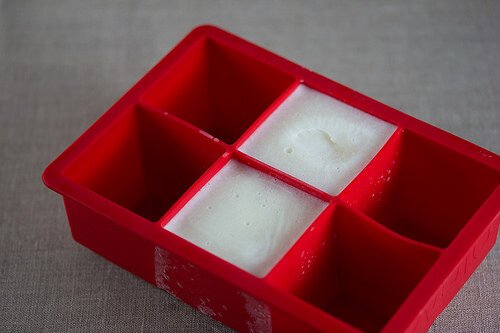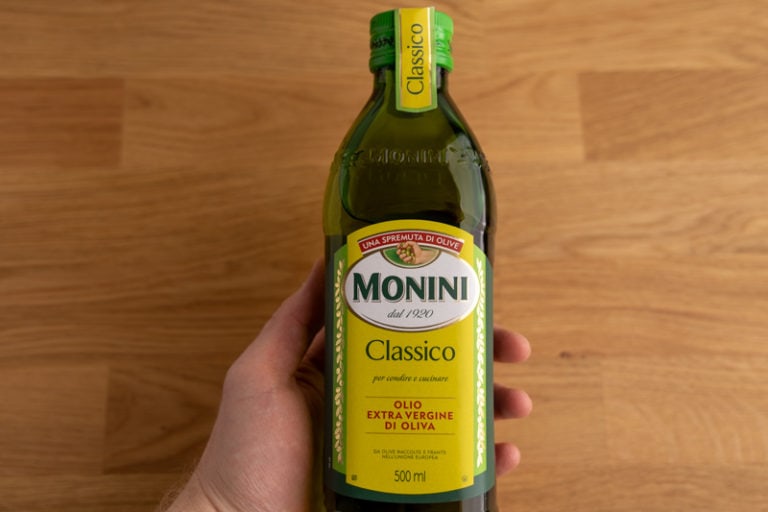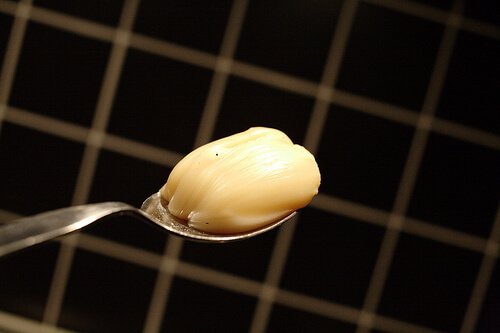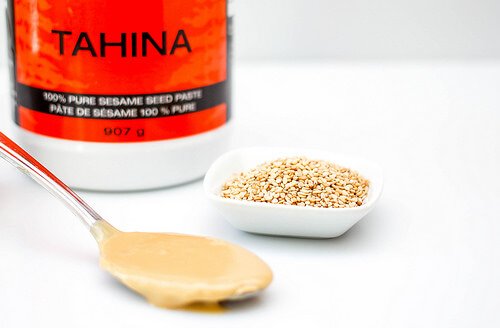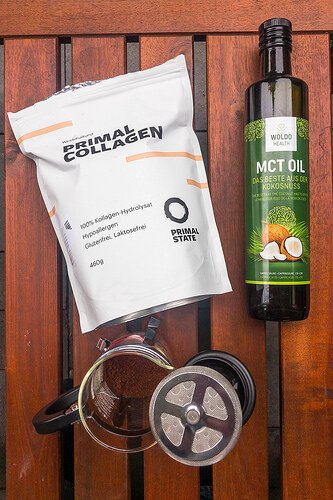Does Coconut Oil Go Bad? [Shelf Life and Expiration]
Got a half-open jar of expired coconut oil, and not sure if it’s still okay to use? Does coconut oil go bad?
Here’s everything you need to know about the shelf life and expiration of coconut oil.
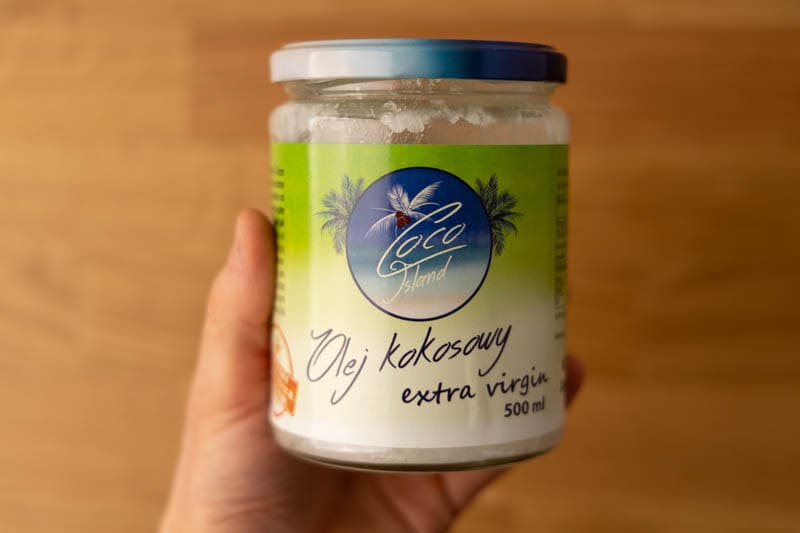
Does Coconut Oil Expire?
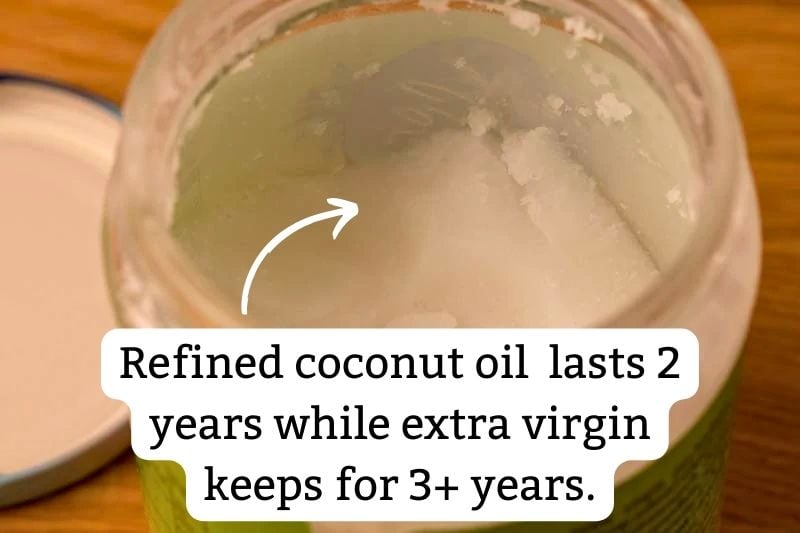
Refined coconut oil lasts about 2 years, while extra virgin coconut oil typically keeps for 3 years or longer. The exact timespan depends on factors such as storage conditions and quality. But if you store your coconut oil sealed tightly in a cool and dark place, it should easily retain quality for a few months beyond the printed date.
Like all other vegetable oils, including Crisco, coconut oil will sooner or later go rancid.
How long that takes depends on a lot of things, but the four horsemen of fat rancidification are air, light, moisture, and bacterial action. So, the better you protect your coconut oil from these, the longer it should last.
(That also means that opening the jar for the first time speeds up rancidification because you introduce fresh air to the fat.)
So, should you toss a jar of coconut oil that’s expired?
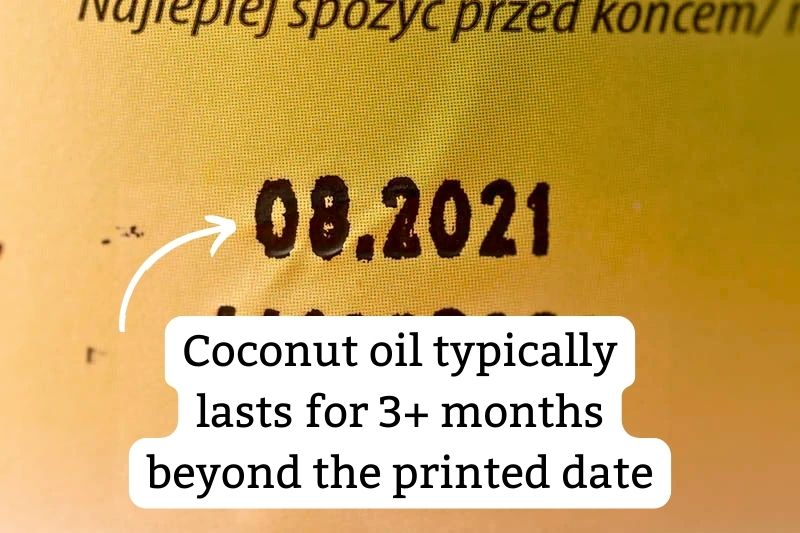
It depends on whether it shows any signs of spoilage. If it doesn’t, and the oil is only a couple of months beyond the printed date, it’s most likely fine.
But if it’s more than a year past its date, I’d toss it no matter the quality. Better safe than sorry.
With that in mind, it’s time to cover spoilage signs. But before we can talk about specific spoilage signs, we need to briefly cover the differences between refined and extra virgin coconut oil. Knowing just the gist of it will help you tell if your oil is okay to use or not with confidence.
Extra Virgin vs. Refined
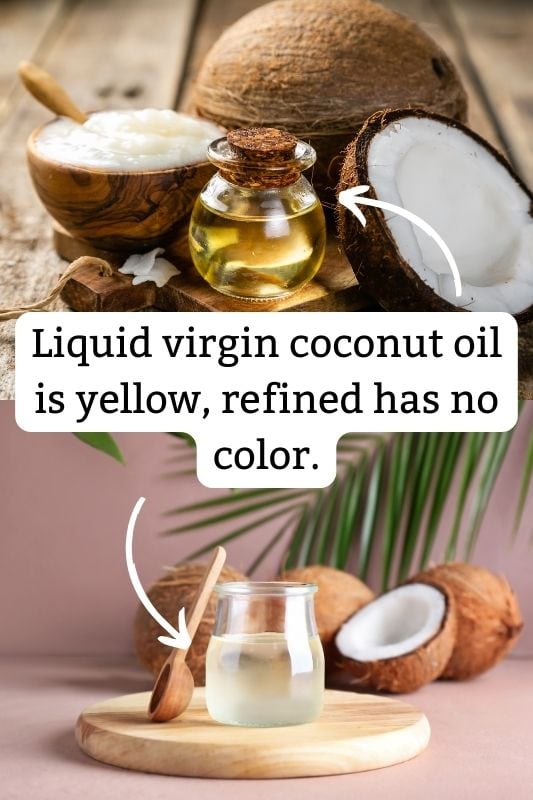
Extra virgin and refined coconut oil are different in terms of the production process and the resulting oil.
Extra virgin (and virgin in general) coconut oil has a slight coconut flavor, smells like coconuts, and has a yellow tint that’s clearly visible when the oil is liquid.
Refined coconut oil, on the other hand, has a neutral flavor and smell, and is transparent when liquid. Removing the coconut smell from the oil is called deodorization, and it’s part of the production process of veggie oils.
So basically, those two varieties are quite different, and to check if yours is safe, you need to know which one you’re working with.
(Interested in reading more about the production process of coconut oil? This Wikipedia page gives a good overview of the possibilities.)
Spoilage Signs
Discard your coconut oil if the oil has noticeably darkened, there’s mold or nasties visible, it smells rancid, or it tastes sour or bitter. The oil being liquid or somewhere between solid and liquid isn’t a spoilage sign if the ambient temperature is around 75°F or higher.
That’s the gist of it.
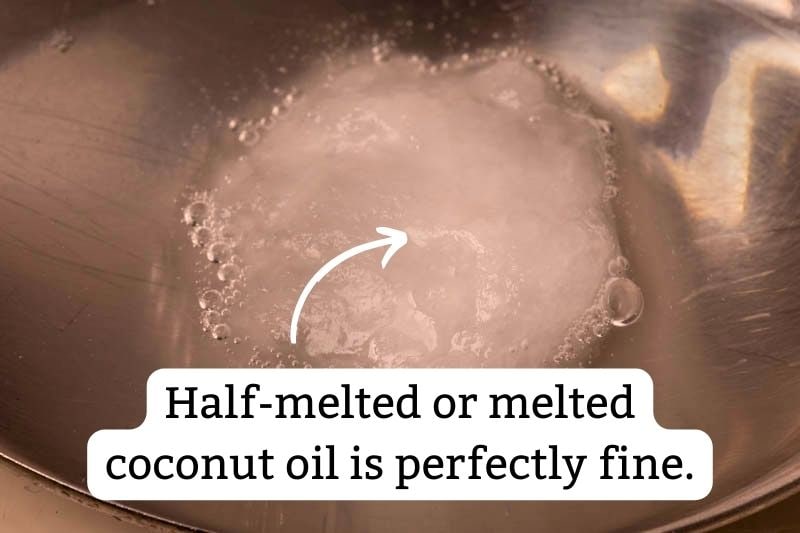
Now, let’s talk about specifics:
- Smell. Refined coconut oil has a neutral smell, while the virgin variety smells slightly coconutty. If your oil smells sour, rancid, or like nail polish remover, discard it.
- Color. Solid coconut oil is typically white or slightly yellowish. Liquid coconut oil has no color if refined and yellowish if not. Any discolorations, dark spots, the whole thing turning yellow (not yellowish), mold, or any nasties mean the fat is no good. If the oil goes liquid and solidifies a couple of times, its color might slightly change, but that’s still not a big deal.
- Texture. Coconut oil is solid at room temperature and starts to liquefy around 75°F or higher. So if you see clumps or little white balls at around that temperature, it’s normal. Give the oil some time, and it’ll fully solidify or liquefy.
- Flavor. Virgin coconut oil has a slightly nutty taste, while the refined variety is typically tasteless. If your coconut oil tastes sour, bitter, or “funny,” toss it.
As you can tell, these are quite similar to spoilage signs of olive oil, or any other vegetable oil for that matter. A quick check will tell you right away if yours is safe to use.
Having covered that, let’s talk about storage.
Do You Refrigerate Coconut Oil?
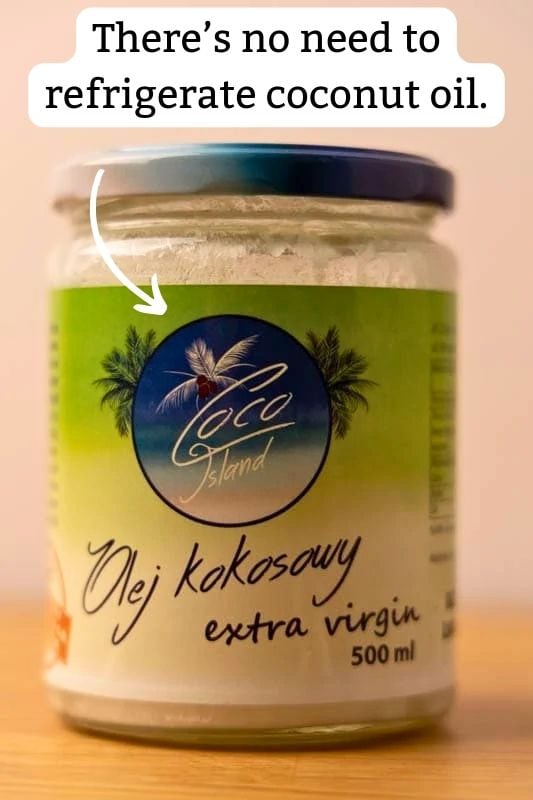
You don’t need to refrigerate coconut oil, but it’s a good option during a hot summer if your coconut oil melts and solidifies regularly due to temperature changes. Besides that, leaving coconut oil in the fridge is okay; just note that it will be firmer than if you left it in the pantry.
In other words, refrigerating coconut oil is an option, but it’s not a must, especially if you have another storage spot that’s cool and dark. I keep mine in a cabinet in the kitchen, and there are no issues whatsoever.
Knowing that, let’s talk about storage practices to get the most out of your coconut oil.
Storage Practices to Extend Shelf Life
Here’s how to keep your coconut oil fresh for longer:
- Seal it tight. Air access speeds up the rancidification process, so make sure the lid is nice and secure on the jar when the oil is not in use.
- Keep it away from sunlight. Like air, light also accelerates the rancidification process, so you should keep the jar in a dark place. A cabinet in the pantry is a great option.
- Store in a cool place. Coconut oil doesn’t require refrigeration, but keeping it nice and cold (well below the melting temperature, around 74-76°F or 23-25°C) is recommended. If you store yours in the kitchen without AC and the oil melts and solidifies every couple of days due to temperature changes, move it to the fridge.
- Use clean utensils. Using dirty spoons is a sure way of introducing food particles and possible contaminants to the oil. Those, in turn, will make the fat lose quality faster than it otherwise would. Use clean spoons for scooping, and you’ll be fine.
Storing coconut oil isn’t rocket science – just a few simple practices go a long way.
Rotten Records: Share Your Snap!
Caught some food past its prime? Upload your photo to “Rotten Records” and help others spot the signs of spoilage. Every image makes our food community safer and more informed!

